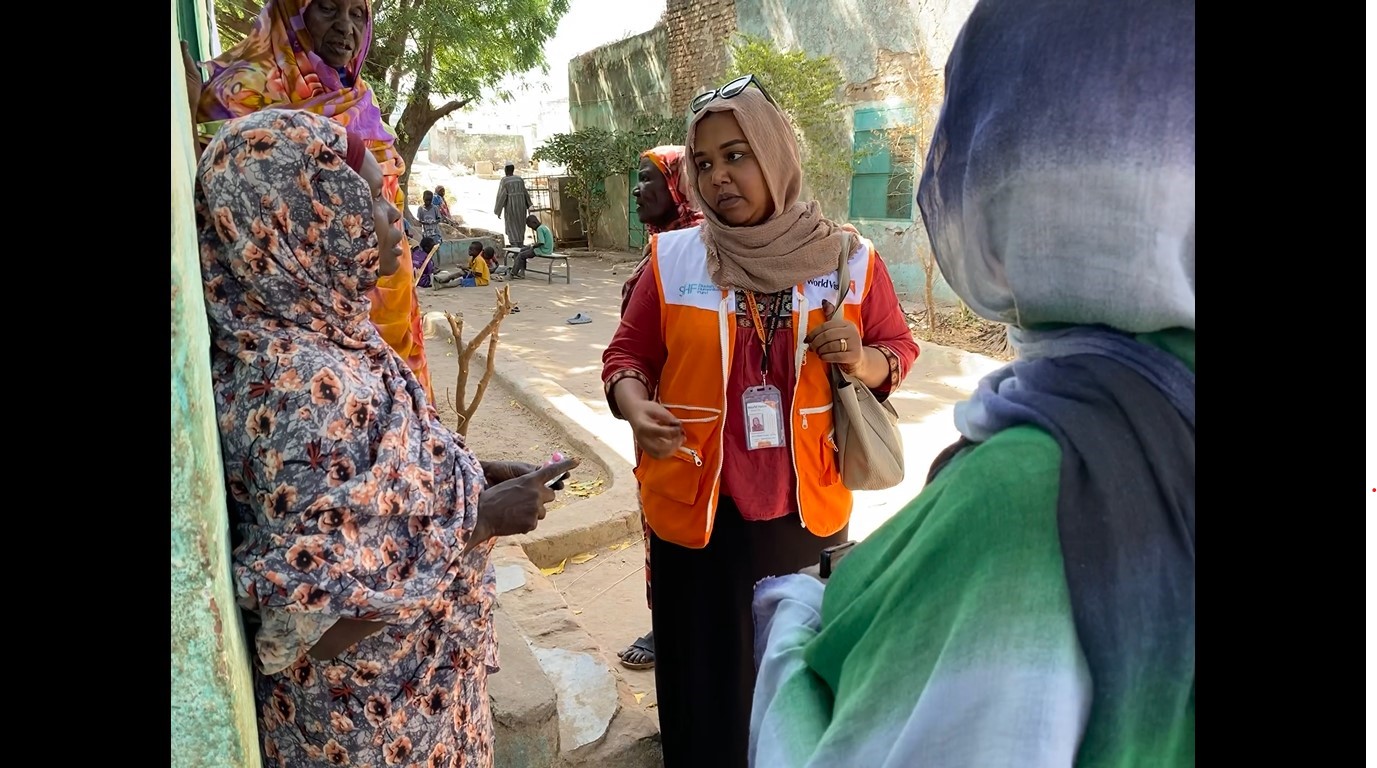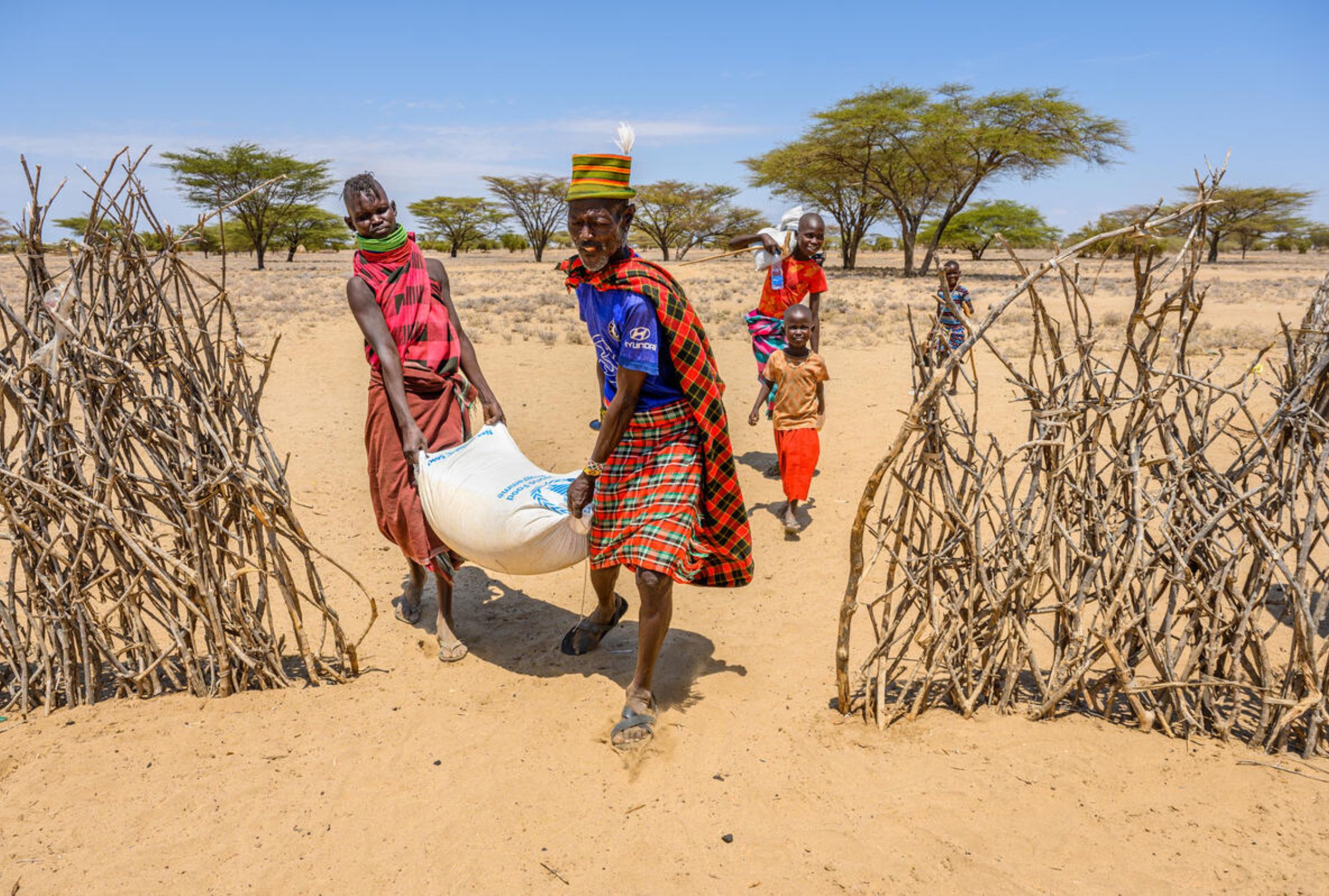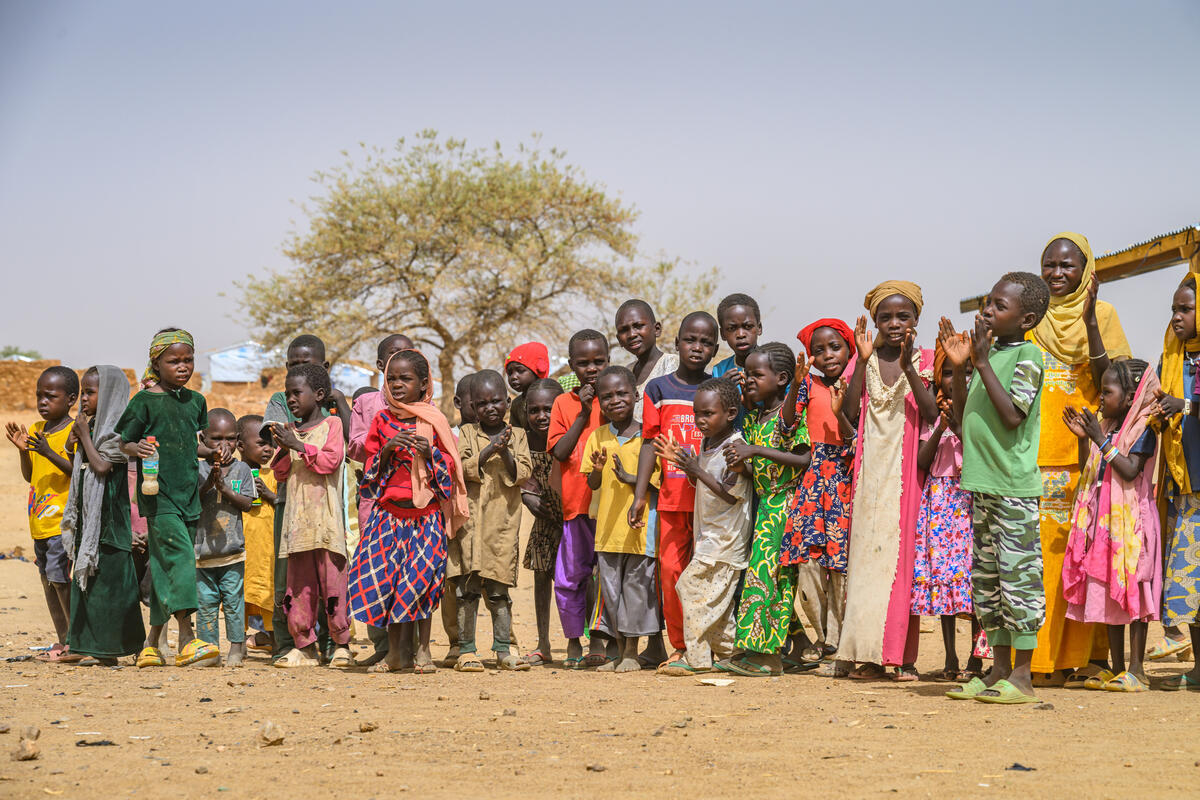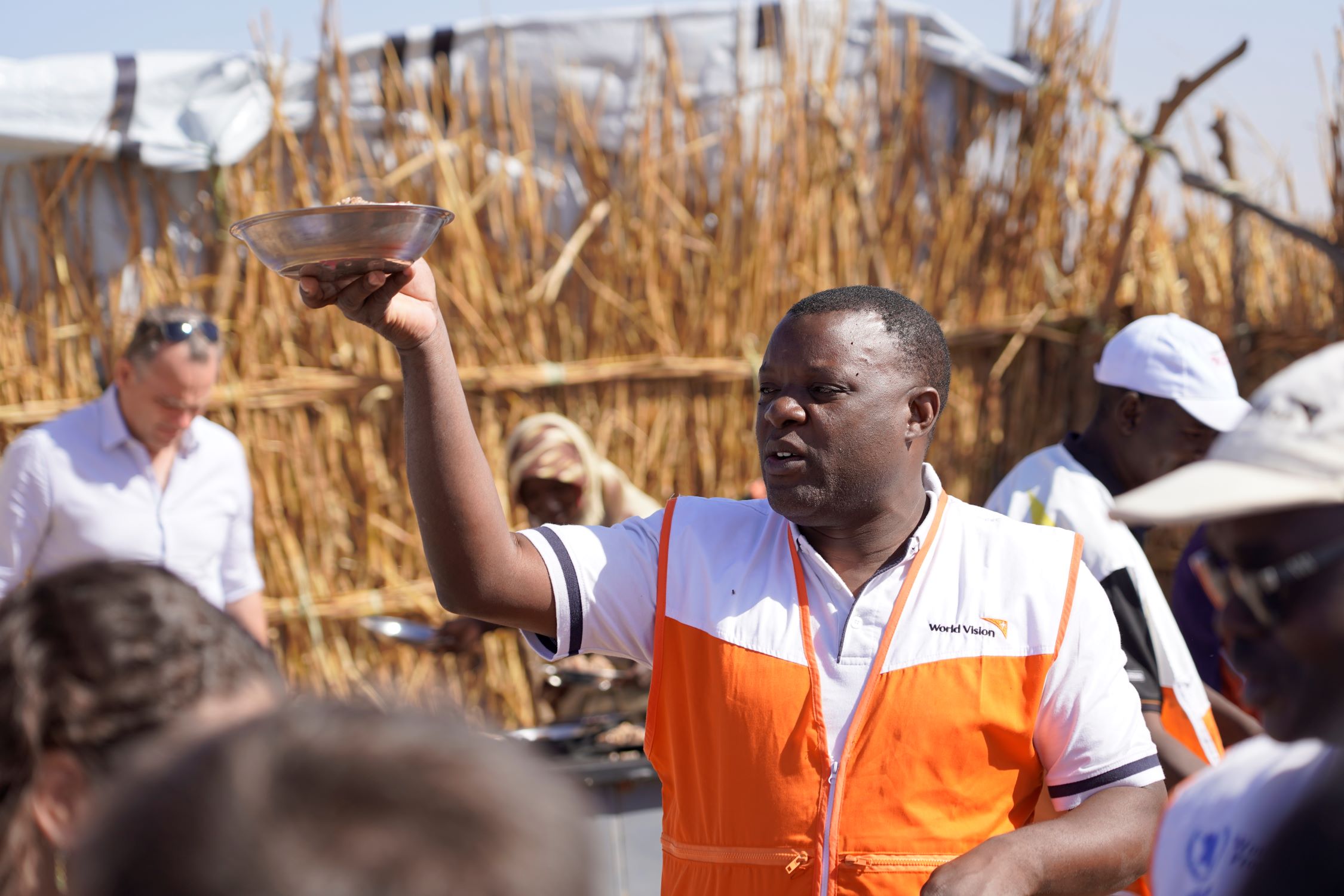
The Sudan conflict: What you need to know
Find out more about the conflict in Sudan.
Fighting broke out on 15 April 2023 following days of tension between Sudan’s military and the paramilitary Rapid Support Forces (RSF) in Sudan’s capital Khartoum.
Now, over a year later, the conflict in Sudan has driven the world’s largest displacement crisis. Nearly 10 million people have been displaced within Sudan, while nearly 2 million people have fled to neighbouring countries.
Here’s what you need to know about the situation in Sudan, and how you can help World Vision provide life-saving aid.
Who is impacted by the fighting in Sudan?
Approximately 25 million people in Sudan rely on humanitarian aid from agencies like World Vision. The latest IPC report reveals that Sudan is facing the worst levels of food insecurity ever recorded in the country.
It’s estimated that 9 million children are facing food insecurity and lack of access to safe drinking water. The country is facing a risk of famine in 14 areas, which has devastating consequences for children and their families.
John Makoni, National Director of World Vision Sudan, said “Sudan is currently quite possibly the worst place in the world for a child to live, due to the huge numbers of boys and girls affected by the conflict, but also because of the full range of physical and emotional challenges they face. Children are literally being starved, abused, and traumatised by what they are experiencing and witnessing.”
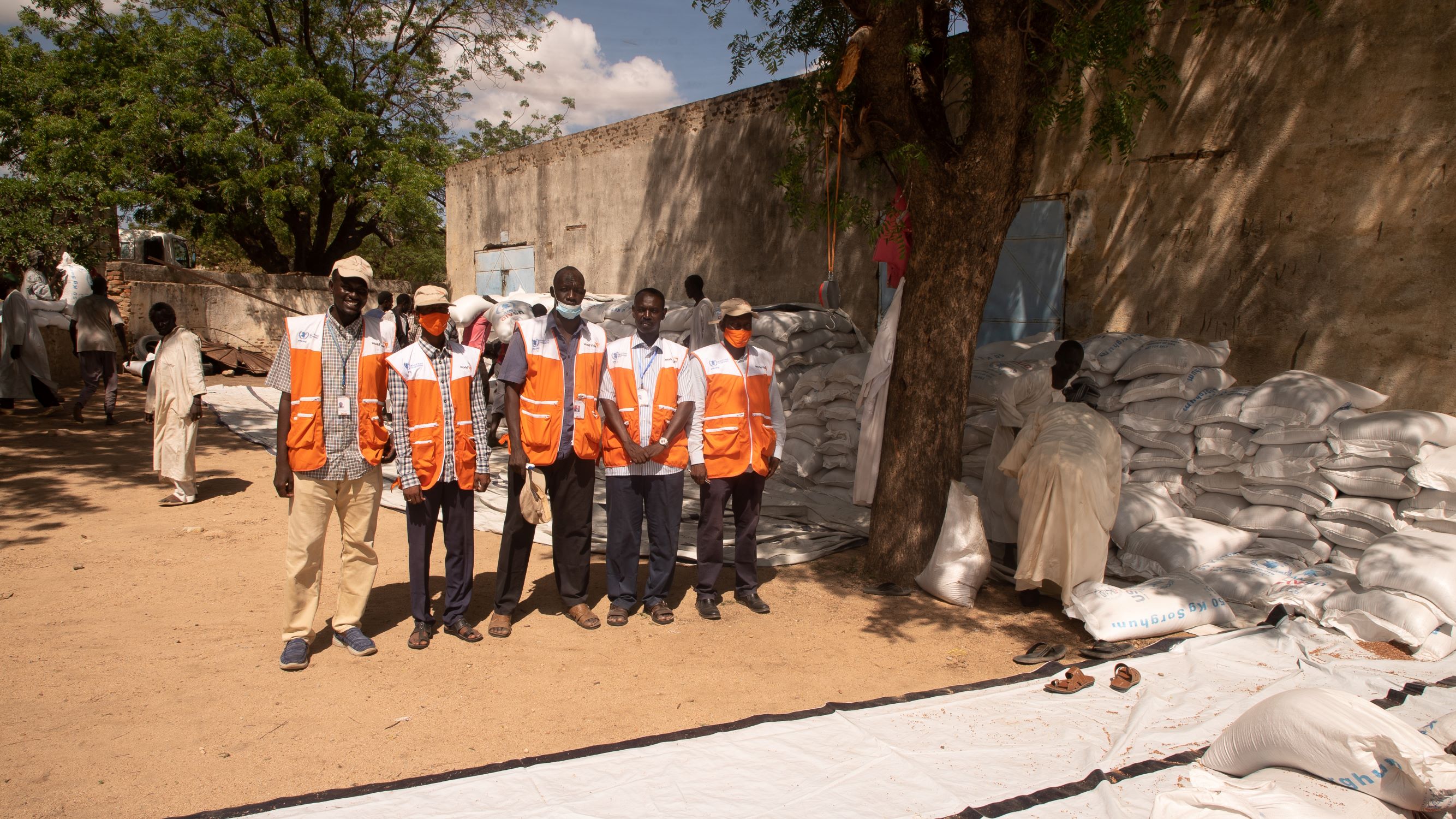
Helping children in Sudan
World Vision is one of the largest humanitarian agencies in Sudan, having worked in the country for decades. Over the past year, World Vision Sudan has reached more than 1.7 million people, mostly women and children, with emergency assistance, including interventions in food security, child protection, health and nutrition and water, sanitation and hygiene (WASH).
World Vision Sudan is currently based in Port Sudan, in addition to working in four states: South Darfur, Blue Nile, East Darfur and South Kordofan.
Humanitarian needs could get worse
The hunger situation in Sudan is dire. We need unhindered humanitarian access to provide food assistance and multipurpose cash among other interventions to respond to the looming famine.
An estimated 25.6 million people – every second person in Sudan– needs humanitarian assistance. Of these, over 8.5 million people are facing emergency crisis levels of food insecurity and over 750,000 are facing catastrophic levels. Children are at risk of dying or suffering physical and developmental harm if they do not get access to food and nutrition assistance.
More than 90% of children in Sudan are deprived of their right to education. As conflict and violence continues, schools will remain closed, which can have a devastating impact on children who receive school meals and mental health support.
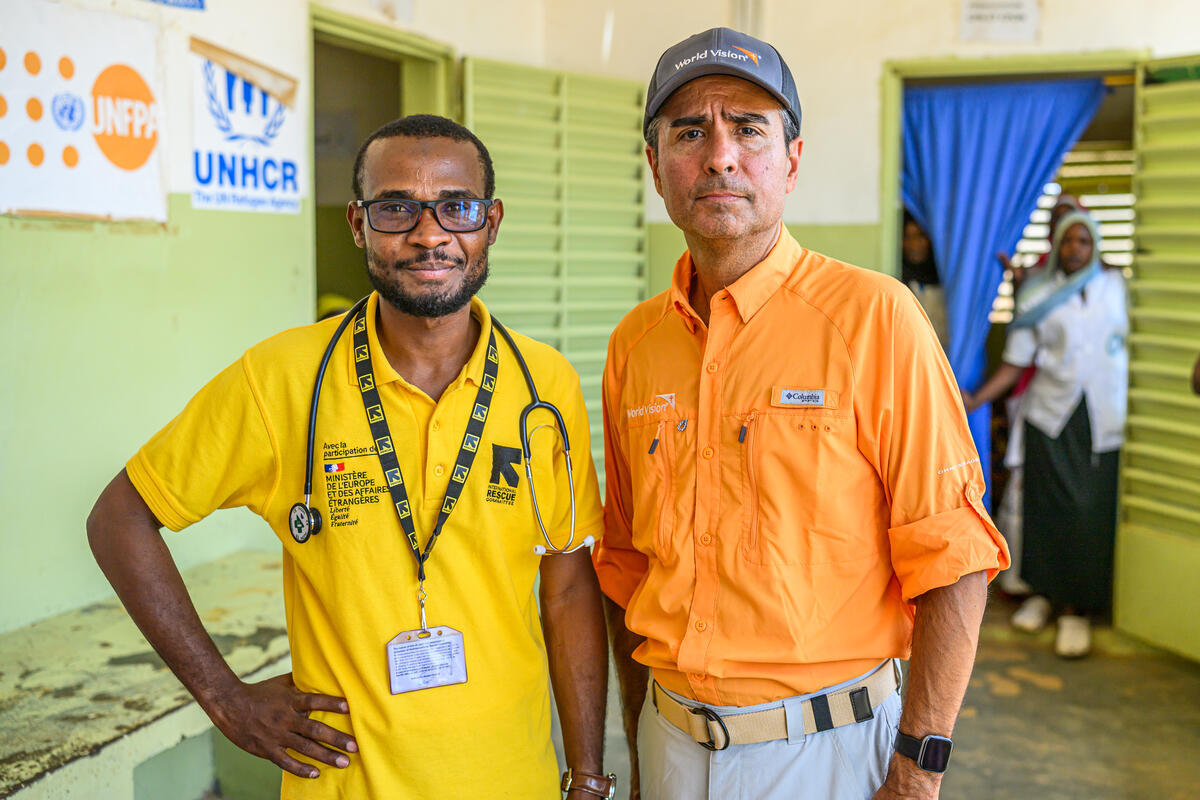
Albachir, the doctor running a nutrition and rehabilitation centre in Chad is concerned about the influx of refugees. He says, “We are expecting 50,000 new refugees. Now we have 20,000.”
Every day, they see a new patient with malnutrition.
Tahani, 20, and 21-month-old twins, Adam and Adeeb, are among the refugees at the nutrition centre. They left Sudan because of the fighting, recalling horrific scenes.
“I faced shooting and people killing people on the road,” says Tahani. “Houses were on fire and villages.”
When they arrived at the nutrition centre in Chad, Dr Albachir noticed that Adam is severely malnourished, weighing only 13 pounds. He started treating both twins, with the hope that Adam’s kidneys and liver would begin to function properly again.
“In the severe cases, the patient’s weight doesn’t increase for three or four days,” explains Dr Albachir.
Dr Albachir works with five nurses at the nutrition centre. They're doing their best to support their patients, but serving a population of thousands is difficult. Albachir says, “You need energy. At any time, they call me I come. Seven days a week. 24 hours a day.”
You can help us reach more children in need
As an international charity, World Vision employs local staff around the world to ensure we’re able to respond to disasters and crises like Sudan’s conflict.
World Vision Sudan is working to protect children from harm and provide humanitarian aid, however humanitarian access is being disrupted by insecurity and violence. We’re operating in four regions in South Sudan, reaching 1.7 million people with clean drinking water, food assistance, cash support and peace building initiatives.
Your donation today can help children survive and rebuild their lives. You can help children at risk of starvation and violence by providing essentials such as shelter or emergency food.

